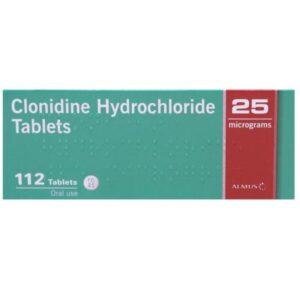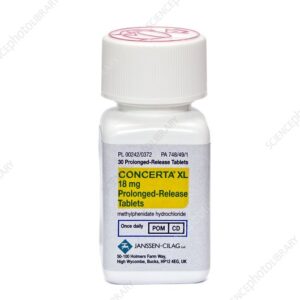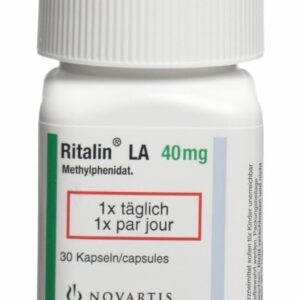Buy Elvanse 15 mg Online
Elvanse 30 mg, known generically as lisdexamfetamine dimesylate, is a prescription medication primarily used to treat attention deficit hyperactivity disorder (ADHD) in children and adults. It is also marketed under the brand name Vyvanse in the United States and several other countries. This guide provides an in-depth exploration of Elvanse, including its alternative names, recommended dosages, common side effects, and overall benefits.
Elvanse 30 mg, allgemein bekannt als Lisdexamfetamindimesylat, ist ein verschreibungspflichtiges Medikament, das hauptsächlich zur Behandlung der Aufmerksamkeitsdefizit-Hyperaktivitätsstörung (ADHS) bei Kindern und Erwachsenen eingesetzt wird. Es wird auch unter dem Markennamen Vyvanse in den Vereinigten Staaten und mehreren anderen Ländern vermarktet. Dieser Leitfaden bietet eine detaillierte Untersuchung von Elvanse, einschließlich seiner alternativen Namen, empfohlenen Dosierungen, häufigen Nebenwirkungen und allgemeinen Vorteilen.
Other Names and Forms
Elvanse is marketed under various names and formulations depending on the country and the specific condition being treated:
- Vyvanse: The most commonly known brand name in the United States and Canada.
- Tyvense: Another brand name used in certain countries.
- Generic Name: Lisdexamfetamine dimesylate, which is the active ingredient in all these brands.
Elvanse is available in several dosage forms, including capsules and chewable tablets, making it versatile for different patient preferences and needs.
Dosage Guidelines
The dosage of Elvanse must be individualized based on the patient’s medical condition, response to treatment, and other factors such as age and weight. Here are general guidelines for Elvanse administration:
For ADHD in Children (6 Years and Older) and Adults
- Starting Dose: The typical starting dose for children and adults is 30 mg once daily in the morning.
- Titration: The dose may be increased in increments of 10 mg or 20 mg per week, based on the therapeutic response and tolerability.
- Maximum Dose: The maximum recommended dose is 70 mg per day.
For Binge Eating Disorder in Adults
- Starting Dose: The recommended starting dose for binge eating disorder (BED) is 30 mg once daily in the morning.
- Titration: The dose may be increased in increments of 20 mg at approximately weekly intervals.
- Maximum Dose: The maximum recommended dose for BED is 70 mg per day.
Administration
- Timing: Elvanse should be taken once daily in the morning, with or without food. It is important to avoid afternoon doses to prevent insomnia.
- Swallowing Capsules: Capsules should be swallowed whole. If swallowing is difficult, the capsule may be opened, and the contents mixed with a small amount of water, orange juice, or yogurt. The entire mixture should be consumed immediately.
- Chewable Tablets: These should be chewed thoroughly before swallowing.
Common Side Effects
As with any medication, Elvanse can cause side effects. Understanding these can help patients manage them effectively and seek medical attention when necessary.
Mild to Moderate Side Effects
- Appetite Suppression: Decreased appetite is common, which can lead to weight loss, particularly in children.
- Insomnia: Difficulty sleeping is a frequent issue, especially if the medication is taken later in the day.
- Dry Mouth: Patients often experience a dry mouth, which can be managed with increased fluid intake.
- Increased Heart Rate and Blood Pressure: Regular monitoring of cardiovascular parameters is essential.
- Anxiety and Irritability: Some patients may feel more anxious or irritable.
- Nausea and Vomiting: These gastrointestinal symptoms are common but usually decrease with time.
Severe Side Effects
- Cardiovascular Issues: Severe cardiovascular events, including stroke and heart attack, although rare, can occur, particularly in patients with preexisting heart conditions.
- Psychiatric Effects: Severe psychiatric effects, such as hallucinations, mania, and aggressive behavior, require immediate medical attention.
- Growth Suppression: In children, long-term use can potentially slow growth. Regular monitoring of height and weight is necessary.
- Dependence and Abuse: As a stimulant, Elvanse has the potential for abuse and dependence. It should be used with caution, particularly in patients with a history of substance abuse.
Overall Benefits
Despite its potential side effects, Elvanse offers significant benefits, particularly in the treatment of ADHD and binge eating disorder.
Benefits in ADHD
- Improved Focus and Attention: Elvanse is highly effective in enhancing focus, attention, and impulse control, which are crucial for academic and occupational success.
- Long-Lasting Effects: The extended-release formulation provides symptom control throughout the day, reducing the need for multiple doses.
- Enhanced Quality of Life: Effective management of ADHD symptoms can lead to improved social interactions, academic performance, and overall quality of life.
Benefits in Binge Eating Disorder
- Reduction in Binge Episodes: Elvanse has been shown to significantly reduce the number of binge eating episodes, helping patients regain control over their eating habits.
- Improved Psychological Well-Being: By reducing binge eating episodes, Elvanse can alleviate the associated psychological distress, such as shame, guilt, and anxiety.
- Weight Management: Although not specifically a weight loss drug, the reduction in binge eating can lead to improved weight management and overall health.
Mechanism of Action
Elvanse is a prodrug, meaning it is inactive until it is metabolized in the body. Once ingested, it is converted into dextroamphetamine, which then increases the levels of neurotransmitters such as dopamine and norepinephrine in the brain. These neurotransmitters play a crucial role in regulating attention, behavior, and mood. The gradual conversion of Elvanse into its active form ensures a steady and prolonged effect, which helps maintain consistent symptom control throughout the day.
Comparisons with Other ADHD Medications
Elvanse vs. Adderall
- Duration of Action: Elvanse provides a longer duration of action compared to Adderall, which requires multiple doses throughout the day.
- Side Effect Profile: Elvanse is associated with a lower risk of rebound symptoms and crashes compared to Adderall.
- Abuse Potential: Both medications have a potential for abuse, but the extended-release nature of Elvanse may offer some reduction in abuse potential.
Elvanse vs. Ritalin
- Mechanism of Action: While both Elvanse and Ritalin are stimulants, they work through different mechanisms. Ritalin primarily increases dopamine levels, while Elvanse affects both dopamine and norepinephrine.
- Duration and Consistency: Elvanse offers a more consistent therapeutic effect throughout the day compared to Ritalin, which often requires multiple doses.
Where To Buy Elvanse
Purchasing Elvanse 30 mg requires careful consideration and adherence to legal and medical guidelines. While local pharmacies offer immediate access and face-to-face consultations, online pharmacies provide convenience and privacy. Confidence Pharmacy stands out as the best place to buy morphine online due to its legitimacy, quality assurance, secure transactions, professional support, exceptional customer service, and convenient ordering process. By choosing Confidence Pharmacy, patients can ensure they receive safe, effective, and genuine morphine to manage their pain effectively.
Conclusion
Elvanse (lisdexamfetamine dimesylate) 15 mg injection is a versatile and effective medication for managing ADHD and binge eating disorder. Its extended-release formulation provides consistent symptom control, improving focus, attention, and impulse control in ADHD patients, and reducing binge eating episodes in those with BED. While it carries the risk of side effects and potential for abuse, careful dosage management and close monitoring by a healthcare provider can mitigate these risks. With responsible use and proper medical supervision, Elvanse can significantly enhance the quality of life for patients, helping them achieve better academic, occupational, and social outcomes.





Reviews
There are no reviews yet.